Do you love the smell of vanilla and are tempted to use essential oils in your home, but worry about the safety for cats? You’re not alone! Pet owners across the globe grapple with how best to keep their environment clean and inviting without compromising the wellbeing of their furry four-legged family members.
However, confusion abounds when it comes to understandings and essential oils, particularly whether vanilla oil is an option that can be used safely around cats.
With this post we’ll demystify these concerns and explain why – while caution should always be taken – vanilla oil can still offer a natural aroma within your home without risking harm or discomfort to cats.
So if you’ve been wondering on ways to make your space naturally fresh without accidentally harming any felines in the process, read on!
Is Vanilla Essential Oil Safe for Cats?
The short answer is yes – though there are important considerations that must be taken into account before introducing vanilla essential oil into any home where cats reside.

While the oil itself has no known toxic effects on cats, it does contain potent aromatic compounds which can cause adverse reactions in some felines if not used responsibly.
As such, it’s important to keep in mind that any essential oil – including vanilla – should always be used with caution around felines.
When using vanilla oils in any environment that cats inhabit, the key is to keep them out of reach and away from direct contact. It is also important to be cautious when diffusing oils as cats’ sense of smell is even more heightened in these cases.
What Are the Symptoms of Essential Oil Poisoning?
Drooling
The most common symptom of essential oil poisoning in cats is excessive drooling. This can be quite alarming, but it is important that drool itself does not have any significant health implications – simply indicates that the cat has been exposed to a scent which is strong for them.
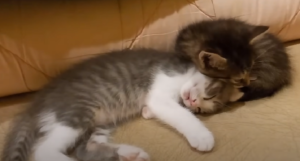
If you see your cat drooling after they have been exposed to an essential oil – particularly in the case of a diffuser – it is best to immediately remove them from the area and ensure that there is plenty of fresh air.
Lethargy
Another common symptom of essential oil poisoning in cats is lethargy. Cats may become uncharacteristically subdued and show a lack of energy if they have been exposed to too strong an aroma.
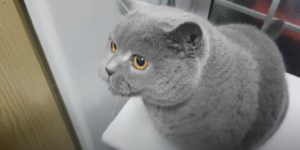
If you notice your cat exhibiting this behaviour, it is important to move them away from the area immediately and provide plenty of fresh air for them to breathe.
Difficulty breathing
In rare cases, cats may also experience difficulty breathing if they have been exposed to a particularly strong scent.
If you notice your cat struggling to breathe or appearing unusually distressed after being exposed to an essential oil it is important to contact a vet immediately as this can be an indication of a more serious issue.
Smell the scent on the fur
Cats’ fur is like a sponge and can quickly absorb scents, meaning that if your cat has been exposed to an essential oil you may be able to smell it even after they have been removed from the area.
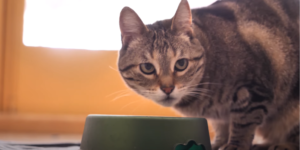
If you notice this happening, it is important to give them a thorough bath with pet-safe shampoo in order to remove any residual oil.
Pawing at the face or mouth
Cats may also paw at their faces or mouths if they have been exposed to an essential oil.
Muscle tremors
In rare cases cats may experience muscle tremors or even seizures if they have been exposed to a particularly strong scent. If this happens it is important to contact a vet immediately as these symptoms can be indicative of a more serious underlying condition.
Burns or redness in the mouth or the skin
Cats may also experience burns or redness around the mouth and on their skin if they have been exposed to an essential oil.
If this happens it is important to immediately contact a vet as these symptoms can indicate that the cat has ingested the oil and could be at risk of further adverse effects.
Vomiting
Vomiting is another possible symptom of essential oil poisoning in cats. If your cat begins to vomit after being exposed to an essential oil it is important to contact a vet immediately as this indicates that the cat has ingested oil and could be suffering from severe symptoms.
What Essential Oils Are Considered Toxic?
Cinnamon
Cinnamon essential oil is considered toxic to cats and should be avoided at all costs. The scent of cinnamon can cause distress in cats and may even lead to seizures if they have been exposed to it for too long.
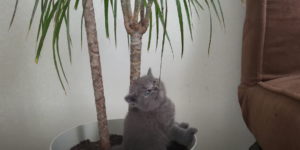
If you notice your cat displaying any signs of discomfort after being exposed to a cinnamon-based fragrance, it is important to immediately remove them from the area and seek veterinary help.
Citrus
Citrus essential oils are also considered toxic to cats and should be avoided. Citrus scents can irritate cats’ eyes, nose and mouth and may even cause burns if they come into contact with the oil directly.
If you notice your cat exhibiting signs of discomfort after being exposed to a citrus-based fragrance, it is important to remove them from the area and seek veterinary help.
Peppermint
If you notice your cat exhibiting any signs of discomfort after being exposed to a peppermint-based fragrance, it is important to immediately remove them from the area and seek veterinary help.
Pine
Pine essential oil is considered toxic to cats and should be avoided. Pine scents can irritate cats’ eyes, nose and mouth and may even cause burns if they come into contact with the oil directly.
If you notice your cat exhibiting signs of discomfort after being exposed to a pine-based fragrance, it is important to remove them from the area and seek veterinary help.
Sweet birch
Sweet birch essential oil is also considered toxic to cats and should be avoided. Sweet birch scents can cause distress in cats and may even lead to seizures if they have been exposed to it for too long.
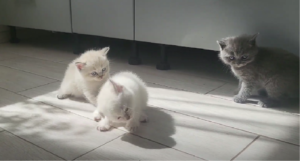
If you notice your cat exhibiting any signs of discomfort after being exposed to a sweet birch-based fragrance, it is important to immediately remove them from the area and seek veterinary help.
Tea tree
Tea tree essential oil should also be avoided as it can irritate cats’ eyes, nose and mouths and may even cause burns if they come into contact with the oil directly.
If you notice your cat exhibiting signs of discomfort after being exposed to a tea tree-based fragrance, it is important to remove them from the area and seek veterinary help.
Pennyroyal
Pennyroyal essential oil is also considered toxic to cats and should be avoided. Pennyroyal scents can cause distress in cats and may even lead to seizures if they have been exposed to it for too long.
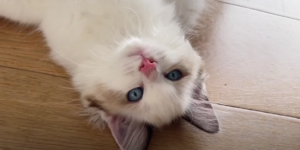
If you notice your cat exhibiting any signs of discomfort after being exposed to a pennyroyal-based fragrance, it is important to immediately remove them from the area and seek veterinary help.
Wintergreen
Winter essential oil is considered toxic to cats and should be avoided. Wintergreen scents can cause distress in cats and may even lead to seizures if they have been exposed to it for too long.
If you notice your cat exhibiting any signs of discomfort after being exposed to a wintergreen-based fragrance, it is important to immediately remove them from the area and seek veterinary help.
Tips for Keeping Your Cat Healthy and Safe
In order to keep your cat safe from the potential dangers of essential oils, it is important to do the following:
- Avoid using any essential oil products in your home.
- Make sure that all essential oil products are kept safely out of reach and away from kitties.
- Never apply any essential oils directly onto your cat, even if diluted.
- Avoid diffusing essential oils near cats, as the concentration can be too high for them to handle.
- If you must use essential oils in areas where your cat frequents, ensure that the area is well ventilated and that the oil is completely dispersed before allowing your pet back into the space.
- If you notice your cat exhibiting any signs of discomfort after being exposed to a fragrance, seek veterinary help immediately.
By following these simple tips, you can ensure that your feline friend remains safe and healthy in the presence of essential oils. With the right precautions in place, cats and essential oils can coexist peacefully.
FAQ
Is vanilla oil safe to diffuse around cats?
No, it is not recommended to diffuse any essential oils around cats. The concentration of the fragrance can be too high for them to handle and may cause distress or irritation.
If you must use essential oils in areas where your cat frequents, ensure that the area is well ventilated and that the oil is completely dispersed before allowing your pet back into the space.
Can cats be exposed to essential oils directly?
No, it is not recommended to apply any essential oils directly onto your cat, even if diluted. Doing so can cause irritation or burns and may put your pet at risk for an adverse reaction.
If you notice your cat exhibiting any signs of discomfort after being exposed to a fragrance, seek veterinary help immediately.
Are all essential oils toxic to cats?
No, not all essential oils are considered toxic to cats. However, it is best to avoid any scents that contain sweet birch, tea tree, pennyroyal, or wintergreen as these can cause distress in cats and may even lead to seizures if they have been exposed to it for too long.
If you notice your cat exhibiting any signs of discomfort after being exposed to a fragrance, seek veterinary help immediately.
Is vanilla essential oil toxic to pets?
No, vanilla essential oil is not considered toxic to pets. However, it should still be used with caution in areas where your pet frequents, as too much of the fragrance can cause distress and irritation.
If you notice your cat exhibiting any signs of discomfort after being exposed to a fragrance, seek veterinary help immediately.
Which essential oils are safe for cats?
While some essential oils are considered safe for cats, it is best to avoid any scents that contain sweet birch, tea tree, pennyroyal, or wintergreen as these can cause distress in cats and may even lead to seizures if they have been exposed to it for too long.
Additionally, it is important to keep all essential oil products away from cats, as they can still be toxic if ingested. If you notice your cat exhibiting any signs of discomfort after being exposed to a fragrance, seek veterinary help immediately.
Do cats like the smell?
That depends on the individual cat. Some cats may enjoy the smell of certain essential oils, such as lavender or chamomile, while others may find it unpleasant. It is best to observe your pet’s reaction when exposed to a fragrance before using any essential oil products in their presence.
If you notice your cat exhibiting any signs of discomfort after being exposed to a fragrance, seek veterinary help immediately.
What should I do if my cat has been exposed to an essential oil?
If you notice your cat exhibiting any signs of discomfort after being exposed to a fragrance, it is important to seek veterinary help immediately.
Additionally, you should remove the source of the essential oil, if possible. Monitor your pet closely and provide plenty of fresh water to help keep them hydrated.
Is it OK to diffuse essential oils around cats?
No, it is not recommended to diffuse any essential oils around cats. The concentration of the fragrance can be too high for them to handle and may cause distress or irritation.
If you must use essential oils in areas where your cat frequents, ensure that the area is well ventilated and that the oil is completely dispersed before allowing your pet back into the space.
If you notice your cat exhibiting any signs of discomfort after being exposed to a fragrance, seek veterinary help immediately.
What essential oils do cats hate that are safe?
Cats may be sensitive to certain fragrances, including those from essential oils. If you must use essential oils in areas where your cat frequents, it is best to avoid any scents that contain sweet birch, tea tree, pennyroyal, or wintergreen as these can cause distress in cats and may even lead to seizures if they have been exposed to it for too long.
Additionally, it is important to keep all essential oil products away from cats, as they can still be toxic if ingested. If you notice your cat exhibiting any signs of discomfort after being exposed to a fragrance, seek veterinary help immediately.
What other precautions should I take when using essential oils around cats?
When using essential oils in areas where cats frequent, it is best to ensure that the area is well-ventilated and that you do not expose your pet to a high concentration of fragrance.
Additionally, keep all essential oil products away from cats, as they can still be toxic if ingested. It is also important to use caution with any scent and be sure to observe your pet’s reaction when exposed to a fragrance before using any essential oil products in their presence.
If you notice your cat exhibiting any signs of discomfort after being exposed to a fragrance, seek veterinary help immediately.
What are some other ways to keep cats safe?
In addition to avoiding essential oils, there are a few steps you can take to ensure your cat’ safety. Be sure to provide plenty of fresh water and food for your pet, as well as clean litter boxes and toys for them to play with.
Additionally, make sure that all doors and windows are securely closed and any potentially dangerous items (such as cleaning products) are kept out of reach.
Finally, be sure to monitor your pet closely and seek veterinary help immediately if you notice any signs of distress or discomfort.
What are the long-term effects of essential oils on cats?
Long-term exposure to essential oils can cause serious health problems in cats, including issues and irritation of the skin and eyes. Additionally, some essential oils may be toxic or even fatal if ingested by cats.
If you notice your cat exhibiting any signs of discomfort after being exposed to a fragrance, seek veterinary help immediately.
What are the best alternatives to using essential oils around cats?
Using natural alternatives is a great way to provide your cat with an enjoyable environment without exposing them to chemicals. There are several options available, including natural fragrances such as lavender and chamomile, as well as other non-toxic products such as potpourri made of dried flowers and herbs.
Additionally, you can also create your own natural cat-friendly scents by boiling citrus peels or simmering spices like cinnamon in a pot of water. Finally, make sure to observe your pet’s reaction before introducing any new fragrances or products into their environment.
How can I make sure my cat is safe when using essential oils?
When using essential oils in areas where your cat frequents, it is important to ensure that the area is well ventilated and that the oil is completely dispersed before allowing your pet back into the space.
Additionally, keep all essential oil products away from cats, as they can still be toxic if ingested.
It is also important to use caution with any scent and be sure to observe your pet’s reaction when exposed to a fragrance before using any essential oil products in their presence.
If you notice your cat exhibiting any signs of discomfort after being exposed to a fragrance, seek veterinary help immediately.
How do I know if a particular fragrance is safe for my cat?
When choosing a fragrance for your home, it is important to research any potential health risks associated with the scent. Many essential oil companies provide information about their products and their safety for pets.
Additionally, there are several online resources that can help you find pet-safe fragrances.
How can I make sure my cat is safe when using essential oils?
When using essential oils in areas where your pet frequents, it is important to ensure that the area is well-ventilated and that you do not expose your pet to a high concentration of fragrance.
Additionally, keep all essential oil products away from cats, as they can still be toxic if ingested. It is also important to use caution with any scent and be sure to observe your pet’s reaction when exposed to a fragrance before using any essential oil products in their presence.
If you notice your cat exhibiting any signs of discomfort after being exposed to a fragrance, seek veterinary help immediately.
Why is it important to use caution when using essential oils with cats?
It is extremely important to use caution when using essential oils with cats, as they can be toxic if ingested or cause irritation of the skin and eyes.
Additionally, some fragrances may not be tolerated by your pet, so it is always best to observe their reaction before introducing any new scents into their environment.
If you notice any signs of distress or discomfort, it is important to seek veterinary help immediately.
Does the type of essential oil make a difference in safety?
Yes, the type of essential oil used can make a big difference in safety. Some oils may be more dangerous than others due to their chemical makeup or concentration level. Additionally, it is important to remember that some oils are potentially toxic and should not be used around cats. Be sure to always do your research and use caution when utilising any essential oil products in your home.
Do some essential oils offer more benefits than others for cats?
Yes, certain essential oils can provide additional health benefits for cats. For example, lavender and chamomile are both known to be calming scents that can help reduce stress in cats.
Additionally, tea tree oil is known to have antimicrobial properties and can help stop the growth of bacteria and fungi in your pet’s environment. It is important to remember that these oils should still be used with caution and never directly applied to the skin.
Does the concentration of essential oils matter for cat safety?
Yes, the concentration of essential oils can make a big difference in safety. Highly concentrated oils can be more dangerous and should only be used with extreme caution.
Additionally, it is important to ensure that any essential oil products are properly diluted before use and that they are not overly potent or applied directly onto the skin.
Does the use of essential oils pose any long-term risks to cats?
The use of essential oils may pose some long-term risks, depending on how often they are used and at what concentrations. Prolonged exposure to certain fragrances can cause allergic reactions, respiratory problems, and other adverse effects.
Additionally, it is important to remember that the use of essential oils does not replace traditional veterinary care and should never be used in place of professional medical advice.
Does the use of essential oils pose any short-term risks to cats?
Yes, there are some short-term risks associated with the use of essential oils around cats. These include irritation of the skin and eyes, respiratory distress, or vomiting and diarrhoea if ingested.
Additionally, some fragrances may cause stress or anxiety in cats and should be used with caution. If your pet is exhibiting any signs of distress or discomfort after being exposed to a fragrance, seek veterinary help immediately.
Do essential oils have any health benefits for cats?
Yes, certain essential oils can have additional health benefits for cats. For example, lavender and chamomile are both known to be calming scents that can help reduce stress in your pet.
Additionally, tea tree oil is known to have antimicrobial properties and can help stop the growth of bacteria and fungi in their environment. It is important to remember that these oils should still be used with caution and never directly applied to the skin.
Does the type of diffuser make a difference in cat safety?
Yes, the type of diffuser can make a big difference in safety. It is important to select a model that is designed specifically for use with essential oils, as some models may not be able to adequately diffuse strong fragrances or provide sufficient ventilation.
Additionally, it is always best to place the diffuser in a well-ventilated area and keep cats away from the device when it is in use.
Does the type of essential oil matter for cat safety?
Yes, certain oils may be more dangerous than others due to their chemical makeup or concentration level.
Additionally, it is important to remember that some oils are potentially toxic and should not be used around cats. Be sure to always do your research and use caution when utilising any essential oil products in your home.
Does the age of the cat matter for essential oil safety?
Yes, young kittens are much more sensitive to fragrances and should never be exposed to essential oils.
Additionally, cats of any age may have different reactions to certain scents so it is important to always monitor your pet closely when introducing them to new smells.
If you notice any signs of distress or discomfort, discontinue use of the oil and seek veterinary care immediately.
Which essential oil is the safest for cats?
The best and safest essential oil for cats is one that does not contain any potentially toxic ingredients. Additionally, it should be properly diluted before use and the concentration should never exceed 1%. Be sure to always do your research and speak with a veterinarian before using any type of fragrance around your pet.
Can cats be exposed to natural vanilla extract?
No, cats should never be exposed to natural vanilla extract as it can contain high concentrations of alcohol and other potentially toxic ingredients. Instead, opt for a pure therapeutic-grade essential oil that is specifically designed for use around animals.
Can I put essential oils in my cat’s drinking water?
No, you should never add essential oils to your cat’s drinking water. Ingesting even small amounts of these fragrances can cause adverse reactions such as vomiting and diarrhoea.
Additionally, some oils are toxic and can be fatal if ingested. If you would like to provide your pet with additional health benefits, opt for adding a few drops of an appropriate oil to their bedding or diffusing it in a well-ventilated area.
Useful Video: Are ESSENTIAL OILS safe for cats? (which are, which aren’t, and what precautions to take) 🌼💐🙀
Conclusion
After looking at all the information out there, it can be difficult to come to a definite conclusion about whether vanilla essential oil is safe for cats. It’s important to note that strong concentrations of any essential oil can be harmful and more research needs to be done on how cats react to these substances.
If you decide to use vanilla essential oil around cats, it is best to take all the proper precautions such as diluting the substance with a carrier oil and ensuring there is plenty of fresh air in the house. Additionally, monitoring your cat’s reactions and consulting a veterinarian are also recommended.
Ultimately, when in doubt – it’s best not to take any risks. As with other cat related topics, always remember that safety should always be your number one priority!
References:
https://excitedcats.com/is-vanilla-essential-oil-safe-for-cats/

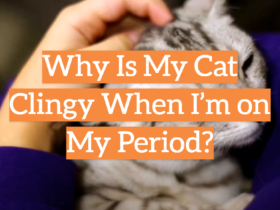


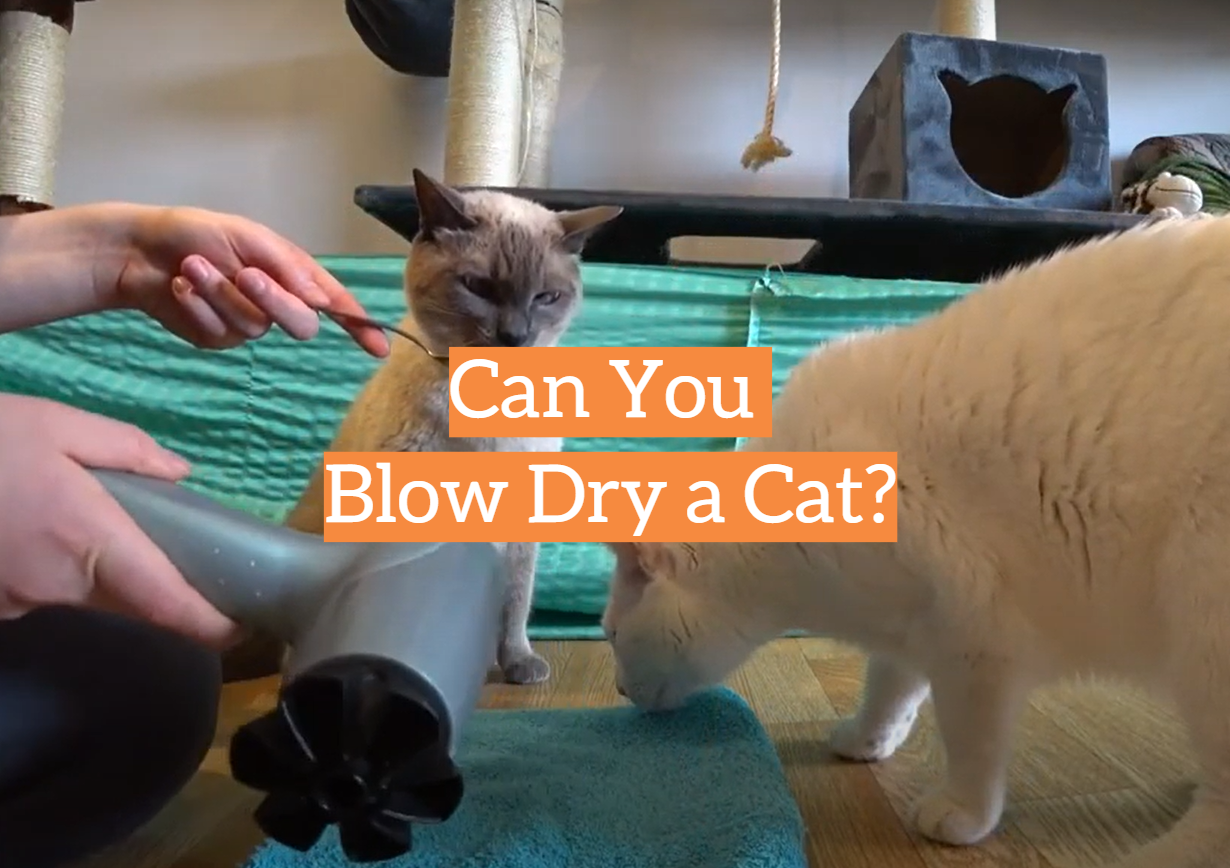
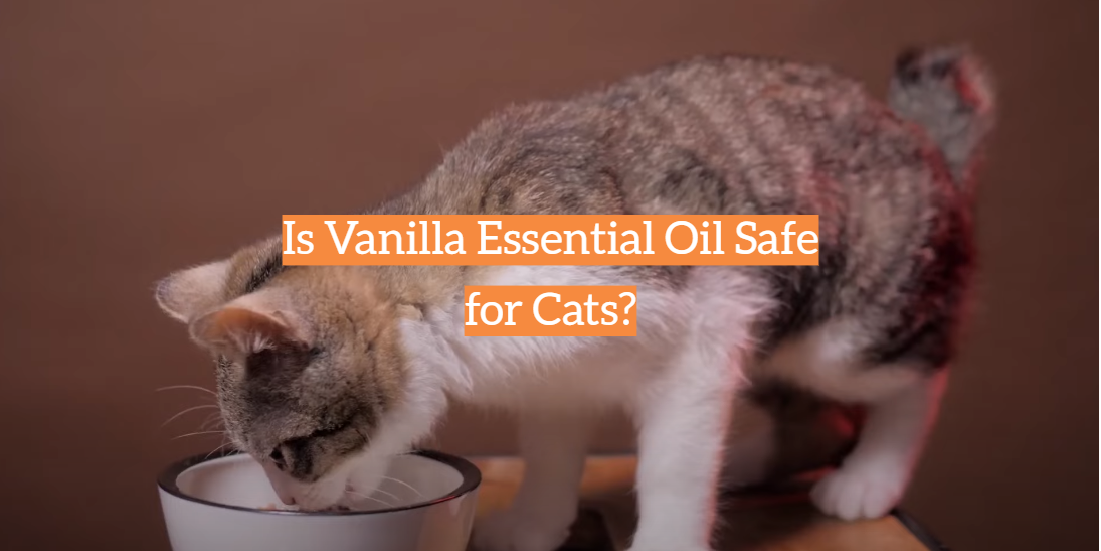
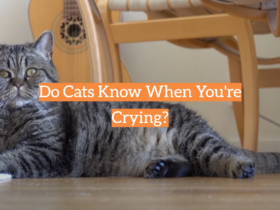



Leave a Reply